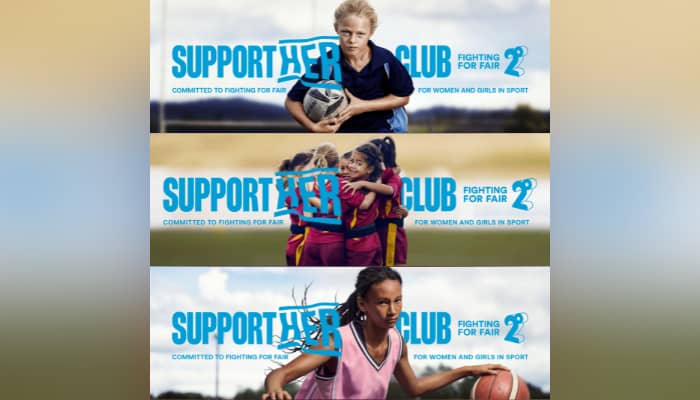Auckland, New Zealand – New Zealand has a legacy of incredible female athletes, but women’s sport still doesn’t get the recognition or support it deserves. Less media coverage, lower funding, and fewer resources mean that at a grassroots level, girls are twice as likely as boys to drop out of sports.
This year, 2degrees is scaling up its sponsorship of women’s sport as part of its ‘Fighting for Fair’ commitment. Off the back of the revolutionary Aupiki TikTok final in 2024, TBWA developed the SupportHER Club, designed to champion women and girls in sports at every level and encourage young women to stay in the game.
At the heart of the campaign is an emotional, powerful AV piece that captures a young girl’s first-day playing team sport. The poignant story highlights the importance of belonging, growing, and creating strong, supportive communities. It’s a reminder that sport isn’t just about winning, it’s about inspiring the next generation to build confidence, resilience, and lifelong friendships. Rugby star, Katelyn Vaha’akolo provides the voice over.
The SupportHER Club will be a go-to hub for information on 2degrees’ sponsorships and partnerships with women’s sports teams and organisations. It will also offer practical tools for those playing a role in shaping the future of women’s sport, whether they’re coaching, cheering from the sidelines, or leading the next generation of female athletes.
The campaign will hit screens and streets throughout March, rolling out across TV, VOD, digital, social media, and OOH advertising to ensure the message reaches and inspires as many people as possible.
Anna Gorman, senior sponsorship & community manager at 2degrees, said, “At 2degrees, we believe fairness should extend to every aspect of life – including sport. Women’s sport deserves equal recognition, support, and investment, and the SupportHER Club is about taking real action to drive change. By backing women and girls at every level, we’re helping to create a future where talent, passion, and dedication are what matter most – not gender.”
Meanwhile, Shane Bradnick, chief creative officer at TBWA\NZ, commented, “This campaign is designed to flip the script and give women and girls in sport the backing they need to thrive. Sport is so much more than competition. It’s about finding your people, growing your confidence, and experiencing the pure joy of the game. With the SupportHER Club, we see this as a rich territory to ensure every girl feels they have that chance.”


